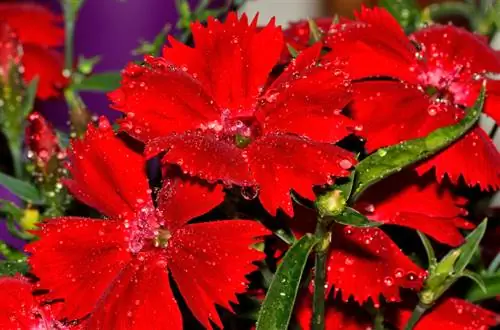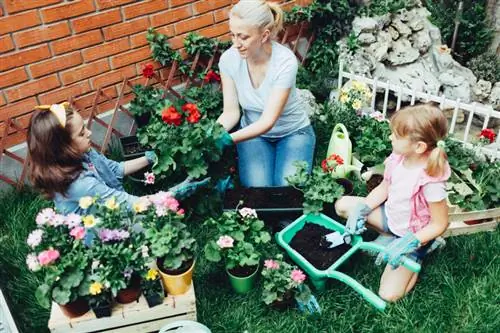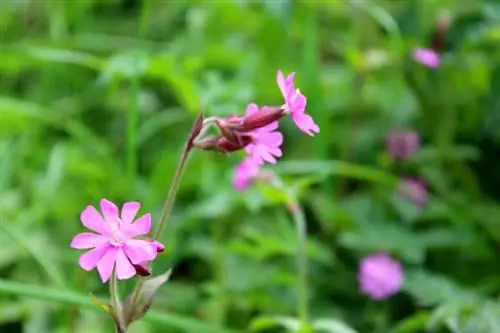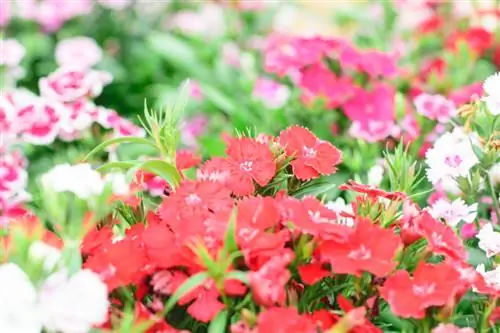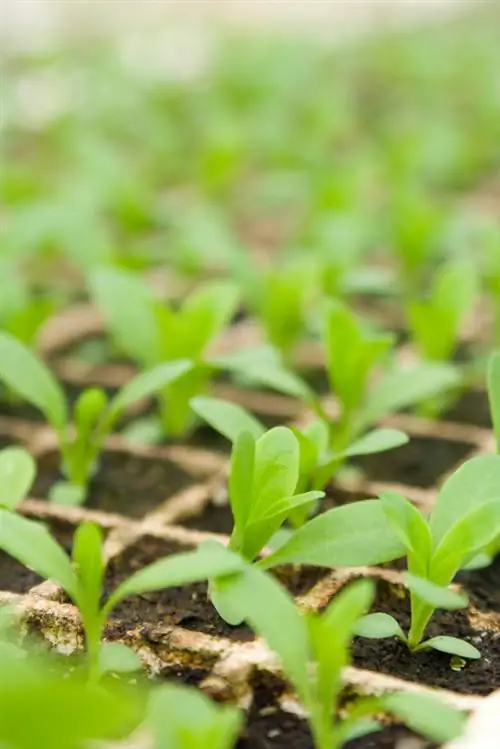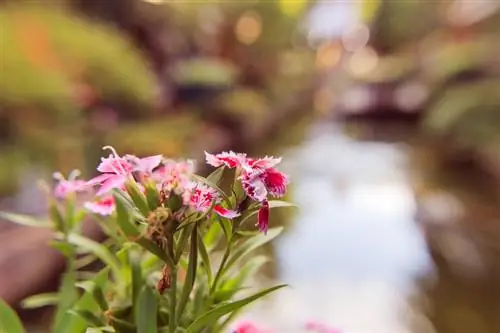- Author admin leonars@hobbygardeners.com.
- Public 2023-12-16 16:46.
- Last modified 2025-01-23 11:20.
Carnations form a dense carpet of flowers in numerous different colors between May and August. The popular flowering perennials are very easy to care for.
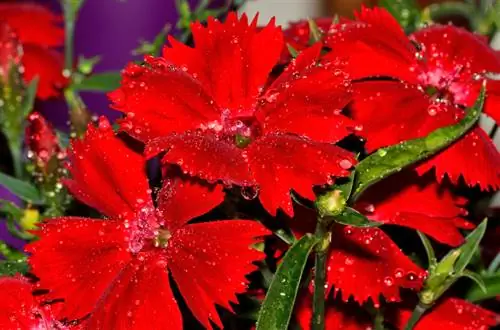
How do you care for carnations properly?
Caring for carnations includes sparing watering directly at the root area, only a little fertilizing, regularly removing spent inflorescences and pruning close to the ground in spring. Perennial carnation species can be rejuvenated by division.
How often do you have to water carnations?
Carnations are naturally used to rather dry locations and have adapted their water requirements to this. The plants only need a little water and should therefore only be watered sparingly. However, you are not allowed to water the perennials, but only water them directly in the root area. Flowers and leaves tend to yellow and rot when watered.
When and with what should you fertilize cloves?
Cloves thrive best in nutrient-poor, barren soil. Fertilization should therefore only be carried out very sparingly. For planted perennials, it is usually enough to supply them with a commercially available complete fertilizer (€26.00 on Amazon) in the spring. On the other hand, you should fertilize carnations grown in pots about every two weeks with a fertilizer for flowering plants.
Can you grow cloves in a pot?
Since carnations are very undemanding, they are ideal for growing in pots. Be careful not to let the plants dry out. But they shouldn't be too wet either: good pot drainage and regular but moderate watering are extremely important.
When is the right time to cut the carnations?
Put off spent inflorescences regularly. Otherwise, cut back close to the ground in early spring, before new shoots appear.
Overwintering carnations properly
Many carnation species are only annual or biennial and therefore basically do not need to be overwintered. Instead, simply leave the dead flowers on the stem and allow the plant to self-sow. Otherwise, most perennial carnations (especially the Carthusian carnation) are quite winter hardy and do not need any additional protection. Place hardy pot carnations in a protected corner on a Styrofoam plate and water them occasionally.
What pests are commonly found on carnations?
Unfortunately, the young shoots in particular are very popular with snails, so you should ensure good protection for planted specimens - otherwise your carnation plantings will soon be completely bare.
What diseases can occur in cloves?
Carnations are actually quite resilient, although fungal infestation is not uncommon in unsuitable locations or when there is too much moisture. In such a case, moving to a sunnier and drier location usually helps.
Tip
Perennial carnation species produce fewer and fewer flowers over time and become bald. Prevent this aging process by rejuvenating the plants in question through division.

